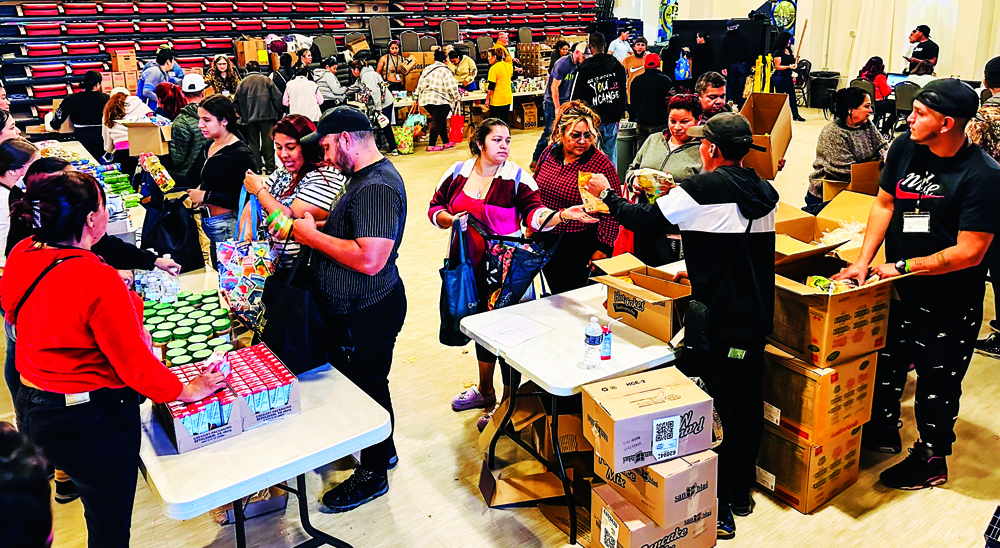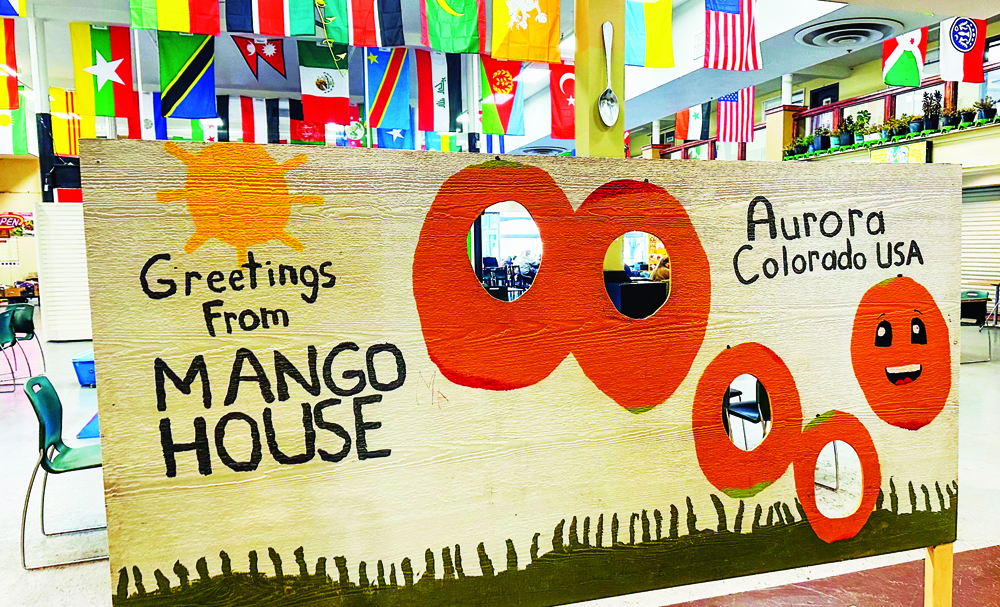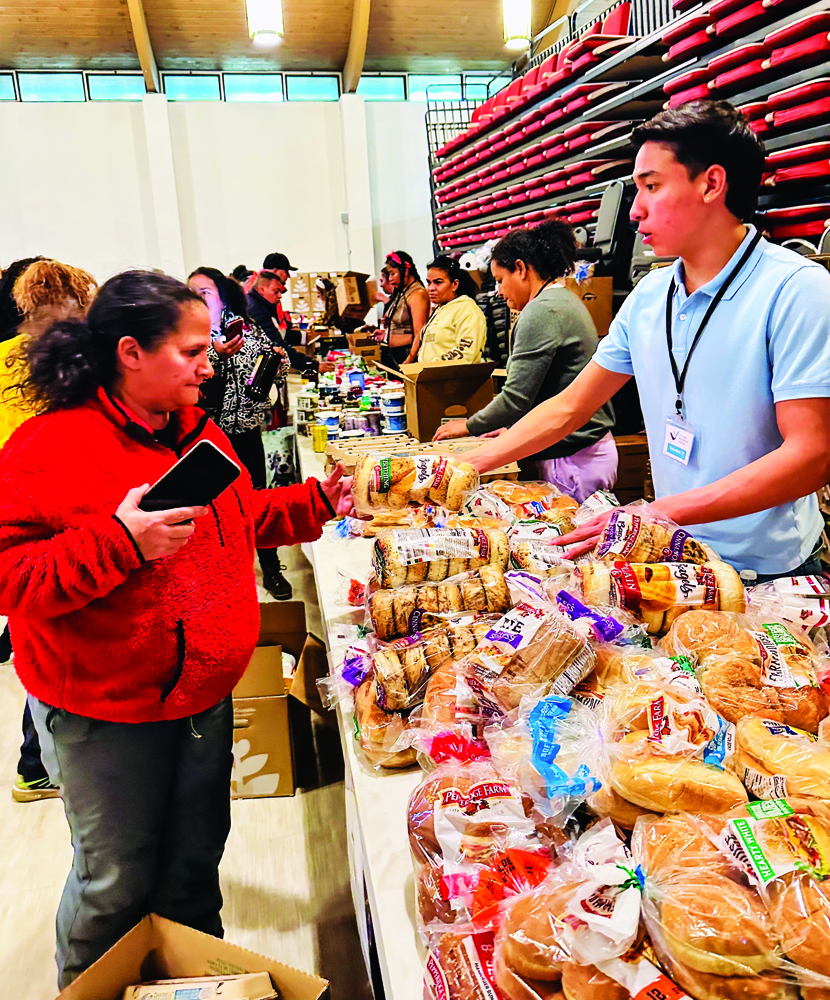
The Village Exchange Center in northwest Aurora provides immigrants with services, including a weekly food pantry, vaccinations, career and education counseling, legal services, a community farm initiative, and more. Last year, the non-profit helped more than 30,000 newly arrived immigrants.
Fear. Confusion. Sadness. Nervousness. Those were just a few of the adjectives used to describe how immigrants—and people who work with them—are feeling after Donald Trump’s victory in November.

Amanda Blaurock, executive director of Village Exchange Center
The president-elect has said he will begin mass deportations of people who are in this country illegally. He dubbed the effort “Operation Aurora” after falsely claiming that the Colorado city had been overtaken by Venezuelan gangs. He has also indicated he may revoke temporary protected status for people who have legally come to the U.S. after fleeing violence or oppression in their home countries.
While many people find that kind of rhetoric disturbing, Amanda Blaurock doesn’t want immigrants to panic. Blaurock is the executive director of the Village Exchange Center in northwest Aurora, a non-profit organization that served 30,000 newly arrived immigrants this past year. “We don’t know today what’s really going to happen, but we definitely will not engage in any fear mongering. We want to keep people calm. We want them to know that we are still here, and that we will still support them.”
The non- profit Village Exchange Center provides services including food, vaccinations, job training, legal resources, and education. Blaurock anticipates the need for services will greatly increase in the coming year, so she hopes to more than double the number of case managers on staff to help connect immigrants with government and non-government services.
Bhim Bhattarai manages the food pantry at the center, which provides food for 600 families every week. He lived in a refugee camp for 22 years in Nepal before resettling in Colorado in 2014. Now, a U.S. citizen and proud Aurora homeowner, Bhattarai says he senses that many newly arrived immigrants are fearful in the wake of the election “and that makes me worry that they won’t come to places like this to get food or services anymore because they’re afraid to leave their homes.”

Mango House, on East Colfax in Aurora, features several immigrant-owned businesses, restaurants, stores, and a non-profit medical clinic.

The Village Exchange Center food pantry provides a variety of groceries for more than 600 immigrant families every Wednesday afternoon.
Dr. P.J. Parmar has been providing medical services to refugees, asylum seekers, and undocumented immigrants in Aurora for more than 13 years. He says among the people he sees, there has been a wide variety of reactions. “Obviously most didn’t want Trump, but interestingly some did, and many are even indifferent or ambivalent for many reasons.”
Outside Parmar’s clinic, the Mango House food court was serving a lunchtime crowd. The immigrant-owned restaurants there serve Burmese, Syrian, Nepali, and Sudanese food, among other cuisines. Several managers of the restaurants told Front Porch that even though they were naturalized citizens, they didn’t want to talk on the record for fear they could suffer some kind of backlash because of the heated political rhetoric.
Central Park resident Christina Carballal has been working with migrant families through the Central Park and Park Hill Newcomer Support page on Facebook. The site acts as a clearinghouse: collecting donations and connecting immigrants with neighborhood families. Carballal says the migrants she has spoken with are worried, “but most believe that the immigrants that will be most impacted are ones who have broken the law either here in the United States or back in their home country.” She knows one immigrant who has successfully gotten a work permit and has found regular work. Still, he’s nervous and plans to save money and be more careful so that he doesn’t draw any attention to himself.
Carballal says she takes some comfort in the fact that during his first term, Trump didn’t carry out many of the things he threatened, “so I’m just hoping that he won’t really carry out the mass deportations that he talked about on the campaign trail.”
Casa de Paz is another organization that helps immigrant communities. Its mission is to offer support to people who have been released from the privately-owned Immigration and Customs Enforcement detention center in northwest Aurora. Executive director Andrea Loya says she’s seen an increase in nervousness among certain groups of immigrants. “There were specific countries that were targeted so much by the media during the election—Venezuela and Haiti in particular—that immigrants from those countries are definitely more fearful.”
Loya says that she is also worried about her organization. “During the first Trump administration we received all kinds of threatening messages because of the work we were doing.” She says there is so much uncertainty about what will happen, so she is trying to remain calm and focus on the work at hand. But she is “enraged” that Trump has targeted Aurora. “I was born in Mexico City, but have been in Aurora for 20 years. What he doesn’t understand is that this community has been a migrant community for many, many years. A strong, diverse, and vibrant community.”
To volunteer with immigrant communities in the northeast Denver metro area, visit the following websites:
- Village exchange center.org
- ProjectWorthmore.org
- CasaDePazColorado.org
- Central Park and Park Hill Newcomer Support page on Facebook
Front Porch photos by Christie Gosch


0 Comments